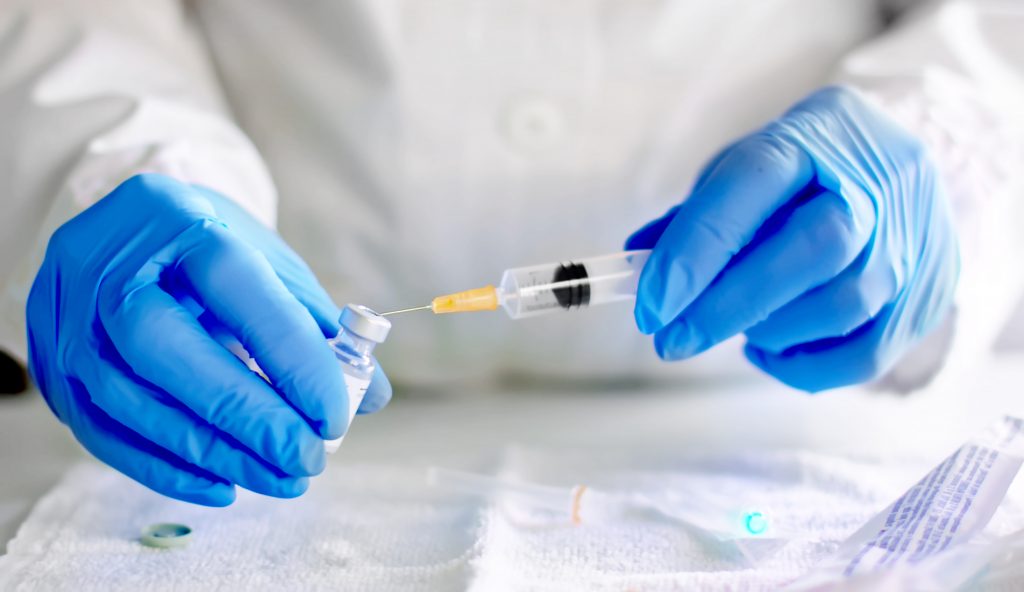Fenway Health has partnered with Matrix Medical Network to deploy a mobile health clinic in Roxbury, East Boston, Lynn, Cambridge, Brockton, Chelsea, and Everett, making it easier for people who live and work in those communities to participate in clinical trials of investigational COVID-19 vaccines.
Fenway is currently participating in the Phase 3 clinical trial testing the efficacy of a vaccine developed by Oxford University and licensed to the pharmaceutical company AstraZeneca to evaluate if the vaccine can prevent symptomatic COVID-19. Fenway Health is recruiting adults aged 18 years or over from diverse racial, ethnic and geographic groups who are healthy or have stable underlying medical conditions, including those living with HIV, and who are at increased risk of infection from the SARS-CoV-2 virus. The vaccine trial will be randomized, double-blind, and placebo-controlled. Fenway Health is one of seven trial sites in New England.
Fenway Health will use the mobile health clinic to support its efforts to ensure that Black and Latinx people are proportionately represented in the clinical trial, as these groups have experienced disproportionately higher rates of SARS-CoV-2 infections and fatalities than other racial and ethnic groups. To date, 35 percent of participants in Fenway’s trial are racial minorities who identify as Hispanic, Black/African American, Asian, Indigenous, or of mixed race.
“Black and Latinx people in America are nearly three times more likely to become infected with COVID-19 and Black people are two times more likely to die from the disease than white people,” said Adrianna Boulin, Community Engagement Manager at The Fenway Institute. “We will not be able to understand the effectiveness of the vaccine in Black and Latinx communities without their participation in vaccine research.”
Volunteers for the vaccine clinical trial will meet with researchers approximately 10 times over a two-year period. Typically, volunteers must travel to clinical research sites, which may require taking time off from work. That inconvenience, when coupled with widespread distrust of the health care system among many Black Indigenous and People of Color has made it historically difficult to enroll racial minorities in clinical trials.
The mobile health clinic permits Fenway Health to safely meet volunteers where they live and work to better ensure that people who have well-founded fears of how they or their families might be impacted by structural racism in the health care system can participate in clinical research. When the mobile medical research van visits communities, it will be parked outside community health care centers that Fenway Health has also partnered with, making it easier to connect community members that we engage with in COVID-19 testing and treatment or other healthcare needs they may have.
Fenway Health’s vaccine trial experience goes back more than 25 years, when the organization enrolled the first participants in anti-HIV vaccine trials funded by the National Institutes of Health. Since then, Fenway Health has run more than a dozen vaccine trials, recruiting participants from all risk groups.
“We have a clinical trials research infrastructure in place that includes a cadre of experienced clinical research staff, an independent ethics review board, and a dedicated community engagement team, and we’re excited to add the mobile health clinic to our arsenal,” said Kenneth H. Mayer, M.D., Medical Research Director, Fenway Health and Co-Director, The Fenway Institute.
Mayer added that although two vaccines that provide protection from developing COVID-19 diseases have already been approved, it was important to continue with additional research into more vaccines and their effects.
“More vaccines likely mean we will be able to end the pandemic sooner,” Mayer said. “But additional research should also yield information to questions about the ways in which vaccines may work differently in different people, especially with regard to their underlying health status and age. On-going research may also help answer questions about how long the vaccine will help the immune system fight against the virus.”
As a member of the COVID-19 Prevention Network, Fenway Health could be involved in future trials utilizing the mobile medical research van. The COVID-19 Prevention Network was formed by the National Institute of Allergy and Infectious Diseases at the US National Institutes of Health to respond to the global pandemic. The COVID-19 Prevention Network is comprised of the HIV Vaccine Trials Network, HIV Prevention Trials Network, AIDS Clinical Trials Group, and Infectious Disease Clinical Research Consortium. Through the COVID-19 Prevention Network, the National Institute of Allergy and Infectious Diseases is leveraging the infectious disease and community engagement expertise of its existing research networks and global partners to address the pressing need for vaccines and antibodies against the SARS-CoV-2 virus.
Individuals interested in participating in COVID-19 research at Fenway Health can learn more here and apply online here.


